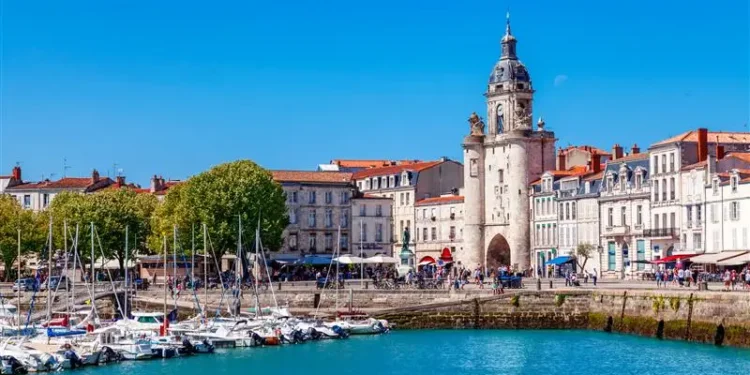A three-hour train ride from Paris lies the medieval port town of La Rochelle. Located in southwestern France, just north of Bordeaux, La Rochelle is a favorite holiday spot for the French and the destination we rated #1 for a retirement in France in this year’s Overseas Retirement Index.
Thanks to its dazzling sunshine, La Rochelle is nicknamed La Ville Blanche (“The White City”)—be sure to pack good sunglasses and a brimmed hat.
Day-to-day life here is vibrant and active. Out and about you’ll see folks of all ages enjoying the salty sea air—grocery shopping at the historic market, playing cards or board games in the park, taking a bike ride, hitting the beach, or simply enjoying a crisp glass of local white wine next to the harbor. Oysters are the first (and often second and third) item on every menu and the city is famed for its seafood offerings.
Start Your New Life Today, Overseas
The town is accessible by foot or bike, and much of the historical heart is pedestrianized. Bike lanes and buses crisscross the city, and boats, buses, and trains take you to any place near or far, making a car unnecessary for most residents.
La Rochelle is home to about 175,000 people, making this the most populous city in the Charente-Maritime department. Aside from the permanent residents, the city sees the influx of students and tourists every year. This is the third most touristed town in France, with over 3 million visitors a year.
Here’s a few more reasons why La Rochelle makes a great retirement haven…
The cost of living in La Rochelle is moderate at between $2,500 and $3,000 per month… but keep in mind, this is a top-tier coastal city offering a mild climate—average highs hit 62°F (17°C), average lows are 50°F (10°C).
Rent, variable by location and property size, ranges from $850 to $1,600 per month. Dining out at French restaurants serving fresh seafood can run you $40 to $75 for two. Groceries, including fresh produce, are fantastically affordable.
Two things that will come cheaper in France than the U.S. or Canada are transportation and health care. Both are well-organized with solid infrastructure and come at almost negligible costs.
A general practitioner here charges 25 euros ($28) per consultation, and that’s what you’d pay for a clinic visit, too. Specialist visits are about 50 euros ($56).
La Rochelle is home to a small selection of hospitals and health centers, the primary being Le Centre Hospitalier Saint-Louis De La Rochelle, a large hospital complex that’s among the best in France.
When it comes to entertainment options, there are a handful of museums, from the aquariums (one of the largest in Europe) to the Musée Maritime—a gem for those interested in the seafaring history of the region.
The local cultural center, Carré Amelot, offers a full calendar of events, including dance, music, art exhibitions, educational programs, and more throughout the year.
Le Gabut, the area where the aquarium is located, is a rehabbed old fishing village turned street art hot spot. Its iconic, brightly painted houses, lively bars, and cafés overlooking the water are a draw for people of all ages.
Outdoor recreation opportunities abound in La Rochelle. The beaches are a major draw, offering boating, fishing, and even surfing. No matter the time of year, the beaches are in use. If it’s too cold for a dip, the coast is the perfect spot for a stroll.
Start Your New Life Today, Overseas
Green spaces are never far, with many small parks throughout the city and the nearly 100-acre Parc Charruyer running through the middle of town. Starting at Plage de la Concurrence, the park continues inland about a mile, providing a complete escape into nature in the heart of the city.
The city walls provide a lovely promenade route along the seaside. Biking is a major part of the culture here. Aside from being a means of transport, biking is a popular pastime among all ages, and the bike paths that wind through the city and surrounding areas are a pleasure to travel. You can even bike across the bridges to Île de Ré or Île d’Oléron, and the islands are bike havens.
France doesn’t offer a retirement visa, a golden visa, or a digital nomad visa, yet establishing residency here is fairly straightforward…
Like most European countries, France will grant residency if you can prove you can support yourself without undertaking paid work. The basic requirement is proof of monthly income of about 1,400 euros ($1,593). This grants you a residence permit that’s valid for one year and renewable.

Sophia Titley
Editor, Overseas Living Letter










